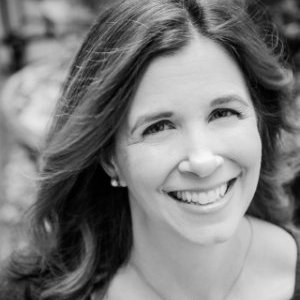Cheryl Cook

This email arrived to the Avodah listserv soon after I arrived at Avodah just over 2 years ago. The woman who wrote this email lived in California near her family and was looking for help in Boston. After writing to her directly, I got the following email from her the same day.
“I have to say I have been blown away by the power of the AVODAH network. I have been astonished by the number of responses and offers to let us stay and provide support in many ways. It’s been such a blessing.”
“Hi everyone:
I had a conversation this morning with a student worker where I work whose parents are undocumented. She is of course really worried about what will happen if her parents get deported. I know things are really uncertain and constantly changing right now but I’d love to give her some resources and places to at least try to get some help. If you know any organizations that are offering free legal help, know your rights trainings, anything that might be helpful please let me know…”
These are but two of the thousands of email threads that come through the Avodah listserv every year. From questions about resources, to job opportunities, to vibrant conversations about social justice issues ranging from Hillel’s position on Israel to the Movement for Black Lives to much more, the listserv serves as a portal into the Avodah community. People who come to Avodah have a shared purpose of making the world better and through their experience, they have a shared language of service and of social justice. Community and social justice are key drivers for our program and our work, sustained and nourished by Jewish wisdom and sacred purpose.
Avodah’s core commitment is to social justice/tzedek. Our participants are working with some of the most vulnerable people in our country, America’s poor. They get to see up close the injustices in America, how our systems and structures often keep people poor. They work with immigrants in detention centers, with homeless people, with people suffering from chronic health issues, with people trafficked to America as teenagers, and much more. Most of our Avodah participants are white American Jews and most of their clients are black or brown skinned. They are steeped in learning about the root causes and effects of poverty. Avodah’s work is to train Jewish leaders to fight poverty and promote social justice and with 19 years of experience, we know that 75% of our participants work in anti-poverty work in the United States for their careers. People who come into Avodah’s programs often say it is the first time they found a program that allowed them to be their full selves, bringing together their Jewish and social justice values into one. Our participants are critical if not scornful of the once a year days of service that permeate our Jewish community, the MLK day of service model that lets people pat themselves on their back that they did a good thing and go back to their daily life. And there is even more fervor to do this work in the last few months as we watch our President and our government spouting ignorant and racist comments, dismantling enormous social progress on health care, on immigration, on LGBTQ rights, and much more. As a response, over the last couple months, Avodah has begun more advocacy work, signing onto letters, endorsing and showing up at marches and rallies, and, most recently, signing an amicus brief for a couple Iraqi people detained at the airport because of the President’s Executive Order banning immigrants from seven Muslim countries.
The work to make serious social change can be slow and it can take a long time. It also can lead to burn out and that’s where the Avodah community/kehillah comes in. When I ask Avodahniks what they cherish most about Avodah, it’s usually the relationships that they build with each other. I hear comments about the strength of the community, the support people get while they are in the programs, but also when they are alumni. People forge friendships that last a lifetime, and they also rely on the Avodah network when they move to a new city, are looking for a new job, or face a crisis, like the young woman who leaned on the Avodah community when her parents were in need in Boston. The Avodah alumni in each city self-organize Shabbat dinners, holiday celebrations, even retreats. And while I don’t have data, I’ve heard that Avodahniks make up a good number of leaders at many of the most creative synagogue communities from Mishkan Shalom in Chicago to 6th & I in Washington, DC.
Over the past year, we’ve been experimenting with new ways to integrate Jewish wisdom/chochma into our Jewish service corps. Our curriculum already brings in Jewish tradition to frame our social justice work. Programs like Shabbat as a radical practice give our corps members a chance to think about their own Jewish practice. This year we are bringing in Jewish educators to work with our corps members, to help them create their communal Jewish practices and to offer spiritual guidance for those who are looking for more. We are still figuring out how this model will work across our programs but in our first few months, we’ve had a great response to this new aspect of our program.
Wrapping up, I believe the idea of sacred purpose/kedusha permeates all that we do at Avodah. I would perhaps add the word hope. Sacred purpose with hope, that each of us can make a difference.
Cheryl Cook is the Executive Director of Avodah and has been active in the Jewish social justice community for over 25 years. She lives in Brooklyn with her family and enjoys hiking and biking in her free time.

